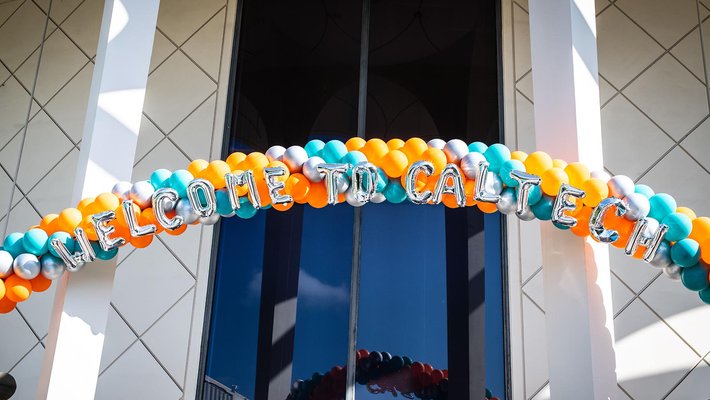Caltech Releases Notice For Extension Of Admissions Offers To Class Of 2027
On Saturday, March 11, Caltech released the last of its undergraduate admissions letters. In total, the admissions office notified 412 students, including those from earlier admissions rounds, of their acceptance to the Institute.
The admitted students come from near and far, representing 39 states, the District of Columbia, Guam, 31 countries, and six continents (all except Antarctica). The accepted applicants expressed a broad range of interests across fields of study, activities, and experiences, but share a strong commitment to science, technology, engineering, and mathematics.
More than one-third of the students submitted a portfolio of creative and maker work, and 45 percent of the students included materials documenting their own past research. One-fifth of the class are scholar athletes who will have the opportunity to compete on one or more of the Institute’s Division III varsity athletic teams. The class, which is 44 percent female (based on sex assigned at birth), includes a number of trans, nonbinary, and gender nonconforming students. More than half of the class—64 percent—identify as students of color.
“This is a class of exceptional, ambitious, and creative young people who are passionate about STEM and using their STEM training to impact the world,” says Ashley Pallie, director of undergraduate admissions. “The students found many different ways to express their enthusiasm for STEM in their applications, and that really helped us understand how students’ individual STEM interests permeate many aspects of their lives.”
The incoming class will mark the second consecutive year in which Caltech admitted 35 QuestBridge National College Match students. QuestBridge, which connects high-achieving, low-income students to top colleges around the country with the promise of full financial commitment from the admitting college or university, has partnered with Caltech since 2008.
Additionally, 17 percent of the admitted students are first-generation college students, meaning they are the first in their immediate family to pursue a four-year degree. Sixty-four percent of the students were admitted from public high schools (a total of 356 schools were represented in this class of 412 students), and 7 percent of the admitted students attended high schools in small towns and rural communities.
The diversity of the class’s interests, backgrounds, and experiences, reflects Caltech’s continued commitment to find and enroll the strongest STEM students from around the world.
“Composing the group of students who are given the opportunity to join our campus community as first-year undergraduates each fall remains one of the most important roles of our faculty, ” says professor of environmental microbiology Jared R. Leadbetter, chair of the first-year admissions and financial aid committee. Leadbetter was one of 25 faculty members serving on the application review committee, which ultimately endorsed all of the offers made.
Admitted students have until May 1 to decide which school they will attend. To assist students in that process and help them visualize what their experience at Caltech might be, the Institute will welcome admitted students to campus from April 19-21 for its Discover Caltech 2023 event, also known as DiscoTech. During DiscoTech, students are invited to visit the Institute’s world-class research centers, laboratories, and facilities. They also will have the opportunity to interact with and hear from faculty on campus and at local facilities, such as the nearby Griffith Observatory, to better learn how subjects of inquiry at the Institute intersect with society at large. Keynote addresses will be given by Caltech’s David Van Valen (PhD ’11), an assistant professor of biology and biological engineering; and Mike Brown, the Richard and Barbara Rosenberg Professor of Planetary Astronomy.
“Caltech’s research programs are integral to the undergraduate student experience,” Leadbetter says, noting that nearly all undergraduate students at Caltech complete one if not several research projects in Institute laboratories before they graduate.
Pallie adds that DiscoTech provides admitted students with the opportunity to immerse themselves in Caltech’s small, close-knit community. “Students get to experience our classes, laboratories, and residential learning communities firsthand, and through that experience they are better able to imagine what it might mean to join the Caltech community,” she says. “Our research and education environment is extraordinary and something you have to experience to appreciate fully.”

